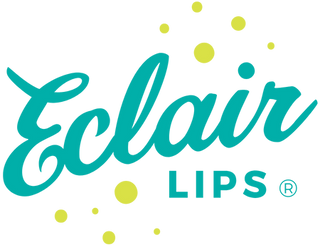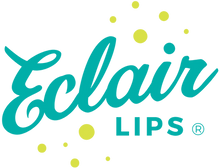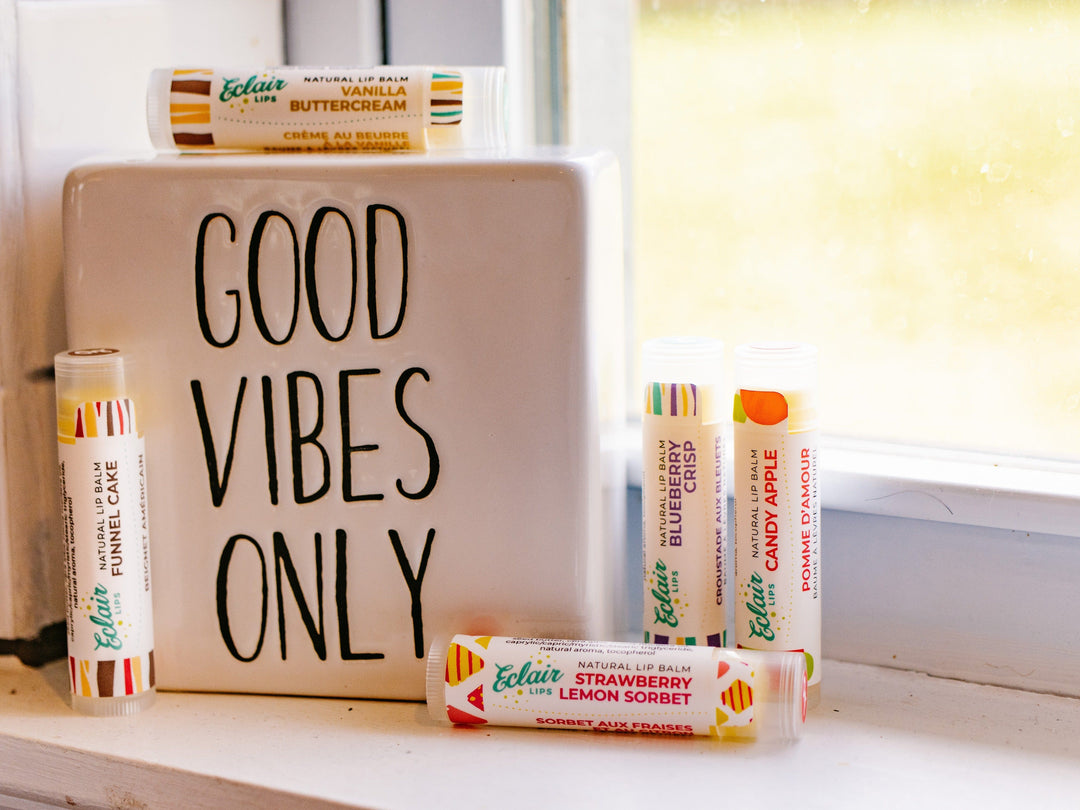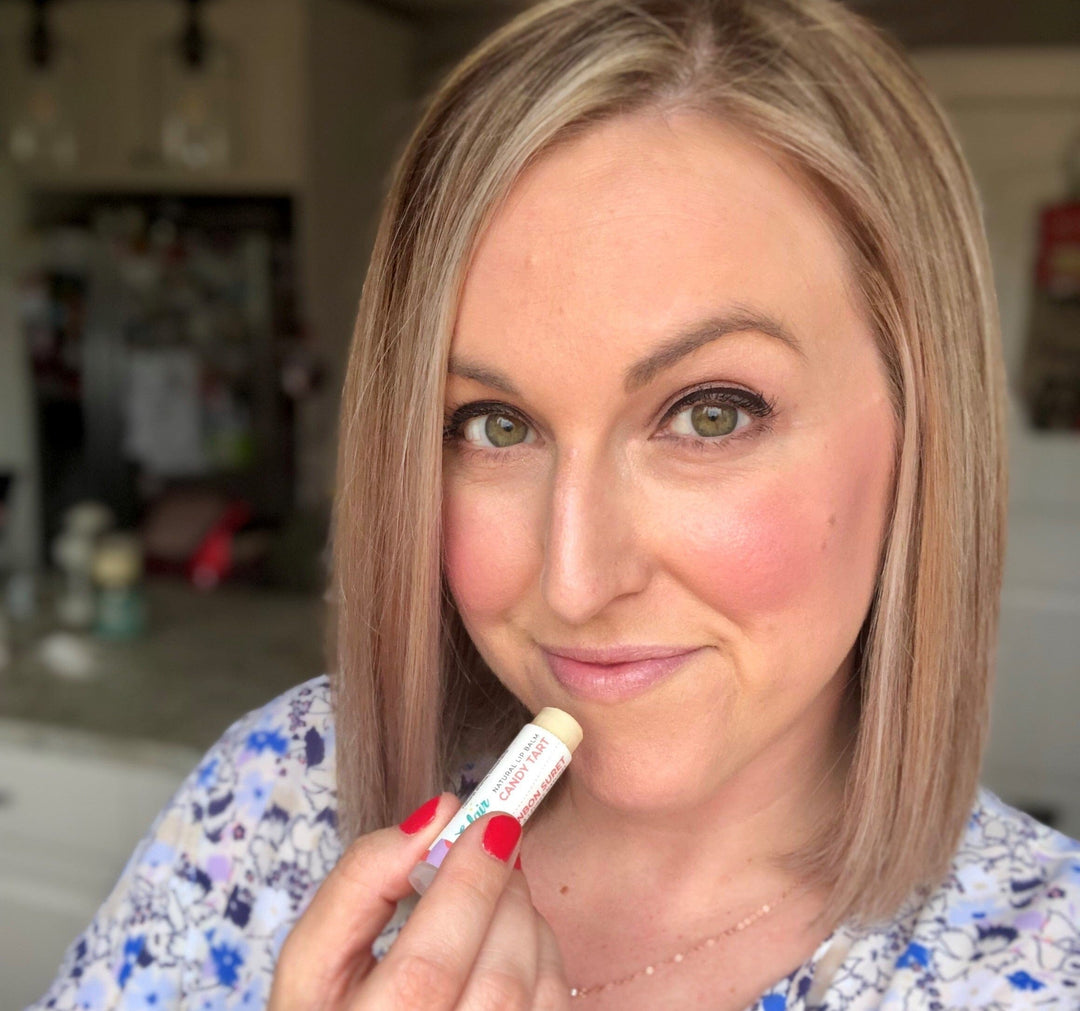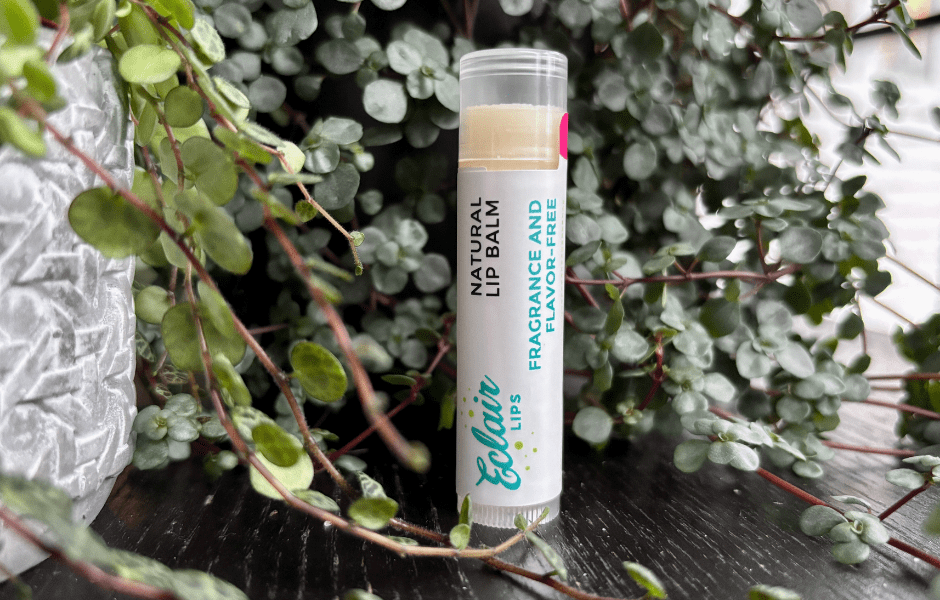Best Lip Balm for Sensitive Lips: Find Relief Without the Sting
The gentle guide to choosing hypoallergenic lip care that actually works

Finding the best lip balm for sensitive lips means finding one that won't betray you, which isn't the easiest when your lips react to everything. That minty balm you grabbed at the drugstore stings the moment it touches your lips, and the flavoured one your friend swears by leaves your mouth red and tight for hours. Finding lip balm that doesn't make your lips angry feels impossible when you're dealing with sensitive skin.
The best lip balm for sensitive lips isn't about fancy ingredients or bold claims, it's about understanding what triggers your reactions and what your lips actually need. Sensitive lips can crack, peel, burn, or develop redness that makes you self-conscious, and the frustration of trying product after product only to feel that familiar sting can make you want to give up entirely.
But there are balms out there that work for reactive lips. The key is knowing what to look for, what to avoid, and how to tell the difference between a formula that will help and one that will make things worse.
Quick Takeaway
- Fragrance-free formulas are almost always safer than scented options for sensitive lips
- Simple ingredient lists work better than complex blends with fifteen different oils
- Cocoa butter is one of the safest butter options with very low reaction rates
- Patch testing new balms can save you from painful reactions on your lips
Contents
Why Sensitive Lips Need Special Care
Sensitive lips aren't just being difficult, they're responding to ingredients or environmental factors that genuinely irritate delicate skin. Your lips have a much thinner protective layer than the rest of your face, with no oil glands to keep them naturally moisturised (which is why they dry out so fast). This makes them more vulnerable to irritants and allergens that might not bother other parts of your skin.
When you have sensitive lips, even ingredients that most people tolerate easily can trigger a reaction. This might show up as burning, stinging, redness, swelling, peeling, or persistent dryness that never seems to get better no matter how much balm you apply. These reactions fall under a category called contact dermatitis, essentially your skin saying "no thank you" to something in the product.
The challenge is that lip balm formulas can contain dozens of ingredients, from waxes and oils to flavours, fragrances, and preservatives. Any one of these could be causing your discomfort.
Dermatological research shows that certain ingredients are more likely to cause reactions than others, with fragrances and flavours topping the list, followed by preservatives, menthol, camphor, and certain natural oils.
That's why finding relief often requires some detective work. You need to identify your personal triggers, understand which ingredients are generally safer bets, and learn to read labels with a critical eye. The good news? Once you figure out what works, the relief is real and lasting.

What Makes a Lip Balm Truly Gentle
The best hypoallergenic lip balm has one thing in common: a short, simple ingredient list. When you're dealing with sensitive lips, less is genuinely more. Every additional ingredient is another potential trigger, so formulas with just a handful of proven, gentle components tend to work better than complex blends with fifteen different oils and extracts.
What you're looking for are ingredients that have a long track record of being well-tolerated by most people. These are the building blocks that do their job (moisturising, protecting, creating a barrier) without causing drama.
Cocoa butter is one of the safest options for sensitive lips. It's naturally hypoallergenic, meaning very few people react to it. It provides rich moisture and a protective cushion without the risk that comes with more complex butters like shea. Refined coconut oil is another low-reactivity choice that melts beautifully on contact and feels soothing rather than irritating.
Beeswax is the backbone of many gentle lip balms. It creates structure and a protective barrier that helps lock in moisture, and most people tolerate it well (though if you have a true allergy to bee products, you'll need to look for alternatives like candelilla wax). The key is avoiding ingredients that are known to cause reactions in sensitive individuals.
When you're choosing a protective balm, look for products that specifically call out what they don't contain: fragrance-free, flavour-free, no added menthol or camphor. These are the formulas most likely to give you relief instead of regret.
Key Ingredients That Work (and What to Avoid)
Understanding which specific ingredients tend to be gentle versus irritating can save you trial and error (and a lot of discomfort). Let's break down the safest options and the ones to approach with caution.
Gentle ingredients for sensitive lips
Cocoa butter is rarely allergenic and provides deep, lasting moisture. It can be used in its crude form (which has a mild chocolate scent) or deodorised for a completely neutral base. Either way, it's one of the safest butters you can put on sensitive lips.
Refined coconut oil melts at skin temperature, creating instant slip and comfort. While some people do have coconut sensitivities, they're relatively uncommon. If you've eaten coconut products without issue, you'll likely tolerate coconut oil in your everyday balm.
Pure beeswax gives balm its structure and staying power. It creates a protective barrier that shields lips from wind and cold without introducing unnecessary complexity. If you're vegan or allergic to bee products, candelilla wax is a solid plant-based alternative with a similarly gentle profile.
Ingredients to avoid if you have sensitive lips
Fragrance and flavour are the top offenders. Even when labelled "natural," these can contain dozens of individual compounds, any of which might irritate your lips. If a balm lists "fragrance," "parfum," "flavour," or "aroma," proceed with caution or skip it entirely.
Menthol, camphor, and peppermint oil create that cooling sensation many people associate with "medicated" lip balm. But on sensitive or already-irritated lips, they often sting or burn, and they can dry lips out over time, creating a cycle where you need to reapply constantly.
Lanolin is an effective moisturiser derived from sheep's wool, but it's also a common allergen. Research on contact dermatitis shows that lanolin sensitivity affects a small but significant percentage of people with reactive skin. If you're prone to reactions, it's safer to skip lanolin-based balms.
Citrus and spice-based flavourings (like lemon, orange, cinnamon, or clove) are particularly risky for sensitive lips. These can cause both irritation and photosensitivity, making your lips more vulnerable to sun damage.
When in doubt, choose the simplest formula you can find. A gentle balm with cocoa butter, beeswax, and coconut oil (and nothing else) is often the safest bet for lips that react to everything.

Common Myths About Hypoallergenic Lip Balm
There's a lot of confusion around what "hypoallergenic" actually means, and believing the wrong information can lead you to products that still irritate your sensitive lips. Let's clear up some common myths.
Myth: A "hypoallergenic" label guarantees the product is safe for you.
The truth is that "hypoallergenic" is not a regulated term in Canada or the United States. Any company can put it on their label without proving anything. The term simply means the product was formulated to minimise the likelihood of allergic reactions, but it doesn't guarantee you won't react to something in it.
A lip balm can be labelled hypoallergenic and still contain coconut oil, cocoa butter, or other ingredients that a small percentage of people are sensitive to. Always read the ingredient list rather than relying on marketing claims.
Myth: Natural ingredients are always gentler than synthetic ones.
This is one of the most persistent myths in skincare, and it's just not true. Essential oils are natural, but they're also some of the most common irritants for sensitive skin. Cinnamon is natural. Peppermint is natural. Both can make your lips burn.
On the flip side, some synthetic ingredients (like certain refined oils) can actually be less irritating than their natural counterparts because they're more purified and predictable. The key isn't whether an ingredient is natural or synthetic, but whether it has a history of being well-tolerated by people with sensitivities.
Myth: If a balm works for someone else with sensitive skin, it will work for you.
Sensitivity is highly individual. Two people can both describe their lips as "sensitive" and react to completely different ingredients. One person might be fine with coconut oil but react to lanolin, while another might be the opposite. There's no one-size-fits-all "best" product, which is why understanding your own triggers is so important.
The bottom line: approach "hypoallergenic" claims with skepticism, don't assume natural equals safe, and remember that the best lip balm for sensitive lips is the one that works for your specific situation, not someone else's.
Comparing Your Options: What Works Best
| Formula Type | Best For | Watch Out For |
|---|---|---|
| Fragrance-free balms | Most sensitive lips, reactions to scents | May have faint natural scent from base ingredients |
| Simple 3-5 ingredient formulas | Identifying triggers, severe sensitivity | Limited variety, may lack certain textures |
| Cocoa butter base | Very low reaction risk, rich moisture | Some people prefer lighter textures |
| Petroleum jelly | Heavily refined, minimal allergens | Not plant-based, can feel heavy |
When you have sensitive lips, the formula type matters as much as the individual ingredients. Fragrance-free is almost always the safer choice for sensitive lips. These balms skip added fragrances entirely, though they may still have a faint natural scent from their base ingredients (like a mild chocolate smell from cocoa butter or a soft coconut note from coconut oil).
Simple formulas win for sensitive lips. A basic balm might have just three to five ingredients: a butter, a wax, an oil, and maybe vitamin E as an antioxidant. The fewer ingredients, the fewer potential irritants, and the easier it is to identify the culprit if you do have a reaction.
If you're choosing between different butters, cocoa butter tends to be the least allergenic option. Shea butter is effective but can cause reactions in people with tree nut sensitivities, while mango butter is another solid choice with a low risk profile.
When comparing options, prioritise simplicity, skip fragrances and flavours, and focus on proven gentle ingredients. That's the formula for finding relief without the guesswork.

Real-World Scenarios: When Sensitive Lips Need Extra Care
Sensitive lips don't exist in a vacuum, they interact with your environment, your routine, and your daily life. Here are some common situations where choosing the right balm becomes especially important.
Office environments: Indoor heating and air conditioning can dry out your lips fast, which makes them more reactive to irritating ingredients. Keep a simple option at your desk and apply it throughout the day. A plain, neutral balm works well in professional settings where you don't want to draw attention or deal with strong scents all day.
School settings: If you're a student (or a parent of one) with sensitive lips, the same principles apply. Many schools are now scent-free environments due to allergies and sensitivities, which means fragrance-free balms aren't just a personal preference but sometimes a requirement.
Post-illness recovery: When you've been sick (especially with a cold or flu), your lips often take a beating from constant nose-blowing, mouth-breathing, and general dehydration. During recovery, your lips might be even more sensitive than usual. This is the time to skip anything with menthol or strong flavours and reach for the gentlest option you have.
Winter weather protection: Canadian winters and cold climates anywhere can make sensitive lips worse. The combination of icy wind outside and dry indoor heat is brutal, and reactive lips need extra protection. Look for balms with higher wax content for staying power, beeswax or candelilla wax will create a barrier that lasts longer in harsh conditions.
The right balm can make all the difference in these situations. The key is matching the formula to your environment and your lips' specific needs at that moment.
What Dermatological Research Shows
Research on contact dermatitis and sensitive skin offers valuable insights into managing reactive lips. Here's what matters based on professional guidance and clinical evidence.
Patch testing is your friend. Before using a new lip balm all day, every day, do a patch test. Apply a small amount to the inside of your wrist or the crook of your elbow and wait 24 hours. If you see redness, itching, or irritation, skip that balm. This simple step can save you from a painful reaction on your lips.
Contact dermatitis is common and avoidable. Research on lip care shows that contact dermatitis on and around the lips is one of the most frequent complaints related to cosmetic products. It's usually caused by an ingredient in lip care products, and the most common culprits are fragrances, flavours, and preservatives.
The good news? Once you identify and avoid your specific trigger, the reaction usually clears up within a few days to a couple of weeks. If it doesn't, or if your lips are severely cracked or bleeding, it's time to see a healthcare professional.
Some reactions are delayed. You might use a balm for days or even weeks before you develop a reaction. This is called delayed-type hypersensitivity, and it's particularly tricky because you assume the product is safe since you've been using it without issue.
Simple formulas are consistently recommended. Clinical guidance emphasises the simplest formulas for people with sensitive or reactive lips. If you're not sure what's causing your problem, strip back to the basics: a balm with just cocoa butter, beeswax, and maybe a single light oil. Once your lips are comfortable, you can slowly reintroduce other ingredients one at a time to see what you tolerate.
The professional consensus is clear: when your lips are sensitive, less is more, and gentle beats fancy every time.

Exploring Alternatives: When One Ingredient Doesn't Work
Even with the gentlest ingredients, some people still react. If you've tried the "safe" options and still had problems, here are some alternatives to consider.
If you react to cocoa butter: Cocoa butter allergies are rare, but they happen (especially if you have a chocolate allergy). If cocoa butter makes your lips itch or swell, try switching to mango butter or a petroleum-based balm instead.
If you react to coconut oil: Coconut allergies are uncommon but real. If coconut oil irritates your lips, look for a soothing balm that uses other light oils like sunflower seed oil or jojoba oil instead.
If you react to beeswax: Beeswax allergies are rare but possible, especially if you're allergic to other bee products like honey or propolis. If beeswax causes a reaction, try candelilla wax or carnauba wax instead. These plant-based waxes provide structure and protection without the bee-derived ingredients.
Petroleum jelly vs plant-based balms: Plain petroleum jelly (like Vaseline) is one of the most hypoallergenic lip care options available. It's heavily refined, which removes potential irritants, and it creates an excellent moisture barrier. Some people prefer plant-based options for personal or environmental reasons, but if you have very sensitive lips, petroleum jelly is worth considering.
When to try an elimination approach: If you're struggling to identify what's causing your reactions, consider an elimination approach. Start with the simplest possible product (pure petroleum jelly or a single-ingredient oil like jojoba) and use it for a week or two to let your lips heal completely. Once your lips are comfortable, introduce one new ingredient at a time.
The good news? With so many options available, there's almost always an alternative that will work for your specific situation. It might take some trial and error, but relief is possible.
Finding the Right Tint for Sensitive Lips
If you want a hint of colour but still need gentle care, tinted balms can work for sensitive lips when formulated carefully. The key is finding tinted options that prioritise gentle ingredients over bold pigment.
Tinted balms are fundamentally moisturising balms with sheer colour added. They should feel like a protective balm first and provide colour second. Look for tinted options that use the same simple, gentle base you'd choose in a regular balm (cocoa butter, beeswax, coconut oil) with minimal added pigments.
Avoid tinted products with heavy fragrances or flavours. Some tinted balms add strong scents to mask the smell of pigments, which defeats the purpose if you have sensitive lips. Stick with fragrance-free or very lightly scented options.
Patch test tinted balms too. Even if you tolerate regular balms from a brand, the pigments in tinted versions might cause reactions. Always test on your wrist first before applying to your lips.
The right tinted balm can give you a touch of colour while still protecting and soothing sensitive lips, but you need to be just as careful about ingredients as you would with regular balm.

FAQs About the Best Lip Balm for Sensitive Lips
How do I patch test a lip balm?
Apply a small amount of the balm to the inside of your wrist or the crook of your elbow (areas where your skin is sensitive but not as delicate as your lips). Leave it on for 24 hours without washing it off. If you see redness, itching, swelling, or any other reaction, don't use that balm on your lips.
What's the single safest ingredient for sensitive lips?
If you had to pick one, plain petroleum jelly is often the safest option. It's heavily refined, which removes potential allergens, and it's been used for decades with very few reports of reactions. If you prefer plant-based, pure cocoa butter is one of the safest natural options.
Can sensitive lips handle any flavour or scent?
It depends on your individual sensitivities. Some people with sensitive lips can tolerate very mild, food-grade flavours, while others react to even the smallest amount. The safest approach is starting with completely fragrance-free and flavour-free options. Once your lips are comfortable, you can experiment with lightly flavoured balms if you want, but always patch test first.
Is beeswax okay for sensitive lips?
For most people, yes. Beeswax is generally well-tolerated and provides excellent protection and structure in lip balms. However, if you're allergic to bee products (honey, propolis, royal jelly), you should avoid beeswax and choose a plant-based wax like candelilla instead.
How long does it take for irritated lips to heal?
If you stop using the irritating product and switch to a gentle, protective option, most people see improvement within a few days to a week. More severe reactions, especially contact dermatitis, can take up to two weeks to fully resolve. If your lips aren't improving after two weeks, see a dermatologist.
Can I use regular lipstick if I have sensitive lips?
It depends. Many lipsticks contain fragrances, dyes, and other ingredients that can irritate sensitive lips. If you want to wear lipstick, look for brands that specifically market to sensitive skin, and always apply a protective layer underneath. You can also try tinted lip balms, which provide colour while still focusing on moisture and protection.
What if I'm allergic to everything?
If you've tried multiple gentle formulas and still have reactions, it's time to see a dermatologist or allergist. They can do patch testing to identify your specific allergens, which will help you avoid them in the future. They can also rule out other causes of lip sensitivity, like nutritional deficiencies or chronic conditions.
Should I avoid all essential oils if I have sensitive lips?
Essential oils are common irritants for sensitive skin, especially oils like peppermint, eucalyptus, cinnamon, and citrus. If your lips are reactive, it's safest to avoid essential oils entirely and stick with plain, unflavoured balms.
Finding Relief Is Possible
Sensitive lips can feel like a constant battle, but the right lip balm makes all the difference. Focus on simple formulas with proven gentle ingredients, avoid common irritants like fragrances and menthol, and don't be afraid to experiment until you find what works for your unique situation. The best hypoallergenic lip balm is the one that lets you forget about your lips because they finally feel comfortable again.
More Lip Balm Guides
- Best Unscented Lip Balm: When You Need Pure Protection Without the Scent
- Best Lip Balm for Winter: Survive the Cold Without the Cracks
- Best Hydrating Lip Balm: What Actually Keeps Lips Comfortable All Day
- Best Ingredients for Lip Balm: What Actually Makes the Difference
- Best Lip Balm Dermatologist Recommendations: What Actually Works
- Best Lip Balm for Angular Cheilitis: What Actually Helps (and What Doesn't)
- Best Lip Balm for Accutane: What Actually Works When Your Lips Are Screaming
- Best Natural Lip Balm: How to Choose the Right One for Your Lips
- Best Lip Balm for Men: Fixing the Common Dealbreakers
- Best Lip Balm: The One That Works for Your Needs in 2025
Explore Our Online Lip Balm Shop
At Eclair Lips, we believe the best lip balm is the one you love to use every day. Every balm is handmade in small batches with natural ingredients, playful dessert-inspired flavours, and a texture we obsessed over until it felt just right. We ship anywhere in Canada and the US, so whether you are in Toronto, Halifax, Las Vegas, or Chicago, you can stock up on your favourite lip balm Canada style, right from your couch.
In our shop, you will find tinted lip balm for a hint of colour, fragrance free balm if your lips are on the sensitive side, gentle lip scrubs to keep everything smooth, and even lip balm for kids when you want something safe and fun to share. Looking for variety? Try a lip balm set to explore new flavoured lip balm favourites or to give as a gift.
Our brand is built on honesty, humour, and heart, and that means no scare tactics, no overblown claims, just lip care that feels good and makes you smile.
Take a peek at our collections here: https://eclairlips.com.
Disclaimer: The information in this post is meant to be helpful, and while we love dorking out about lip balm, it isn't medical advice. Everyone's needs are different, so if you have concerns about allergies, sensitivities, pregnancy, or a medical condition, please check with a healthcare professional before trying new products.
